are all crookneck squash GMO ??
jeanwedding. zone 6
15 years ago
Related Stories
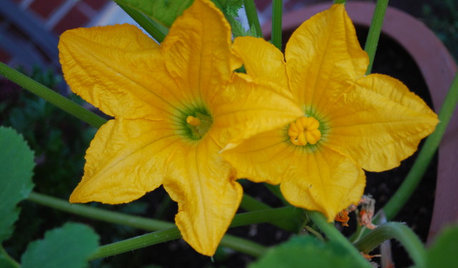
EDIBLE GARDENSSummer Crops: How to Grow Squash
Almost foolproof and with cheerful flowers, squash comes in a wide range of varieties to plant in spring
Full Story
EDIBLE GARDENS8 Surefire Vegetables and Herbs for Beginning Gardeners
Learn the edible plants that are popular and easy to grow in a backyard or container garden
Full Story
EDIBLE GARDENSSummer Crops: How to Grow Pumpkins
Start in spring to grow your own fall decorations and have plenty left for pies
Full Story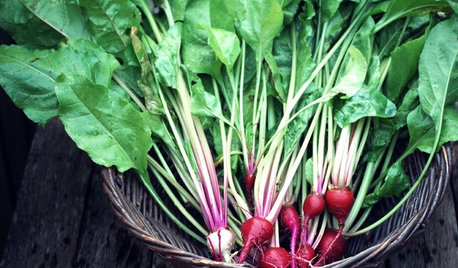
EDIBLE GARDENS8 Last-Minute Additions to a Summer Edible Garden
It’s not too late to get these vegetables and herbs planted for a bountiful harvest this year
Full Story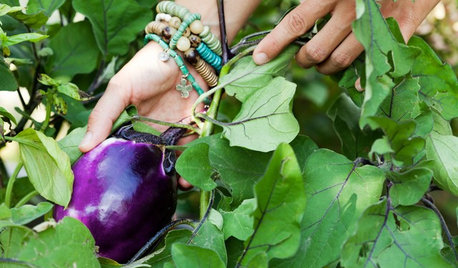
EDIBLE GARDENSHouzz Call: What Did You Grow This Summer?
Let’s celebrate the homegrown fruits and vegetables of the season. Post your pictures and tell us about your harvest
Full Story
GARDENING GUIDES6 Plants That Beat Butterfly Bush for the Wildlife Draw
It's invasive, a nonnative and a poor insect magnet. Check out these better alternatives to butterfly bush in the garden
Full Story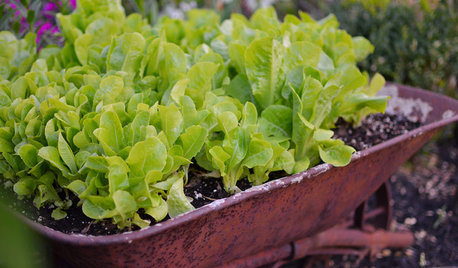
FARM YOUR YARD10 Easy Edibles to Grow in Containers
These herbs, vegetables and fruits are just as happy in a pot as they are in the ground
Full Story
GARDENING AND LANDSCAPINGFeast Your Eyes on Edible Gardens
Gorgeous vegetables, solo or paired with ornamental flowers and grasses, make landscapes easy to swallow
Full Story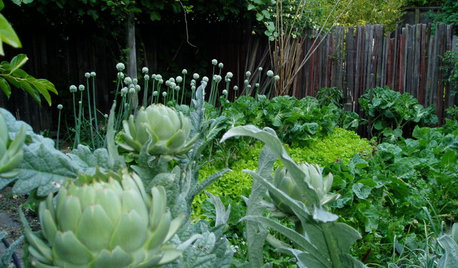
FRONT YARD IDEAS10 Ideas for a Front-Yard Edible Garden Your Neighbors Will Love
Choosing attractive, well-mannered plants and sharing the bounty will go a long way toward keeping the peace
Full Story
EDIBLE GARDENSHow to Grow Your Own Sweet Summer Crops
This guide will help any gardener get started on growing the freshest warm-season veggies and berries for summer
Full StoryMore Discussions







pnbrown
rhizo_1 (North AL) zone 7
Related Professionals
Wixom Landscape Architects & Landscape Designers · Dallas Landscape Contractors · Harvey Landscape Contractors · Mastic Beach Landscape Contractors · Paso Robles Landscape Contractors · Saint Paul Landscape Contractors · Seymour Landscape Contractors · Suitland Landscape Contractors · Wareham Landscape Contractors · Bowie Decks, Patios & Outdoor Enclosures · Natick Decks, Patios & Outdoor Enclosures · Port Saint Lucie Decks, Patios & Outdoor Enclosures · Roanoke Decks, Patios & Outdoor Enclosures · Rosemont Decks, Patios & Outdoor Enclosures · Dent Stone, Pavers & Concretejeanwedding. zone 6Original Author
Kimmsr
adirondackgardener
tomakers
Kimmsr
adirondackgardener
pnbrown
tomakers
Kimmsr
pnbrown
rhizo_1 (North AL) zone 7
bakersville
tomakers
adirondackgardener
sudzy
Kimmsr
sudzy
pnbrown
alfie_md6
pnbrown
rhizo_1 (North AL) zone 7
bcday
jason44
jason44
Michael
jason44
paulns
atara74
suzyjack
elisa_z5
Kimmsr
suncitylinda